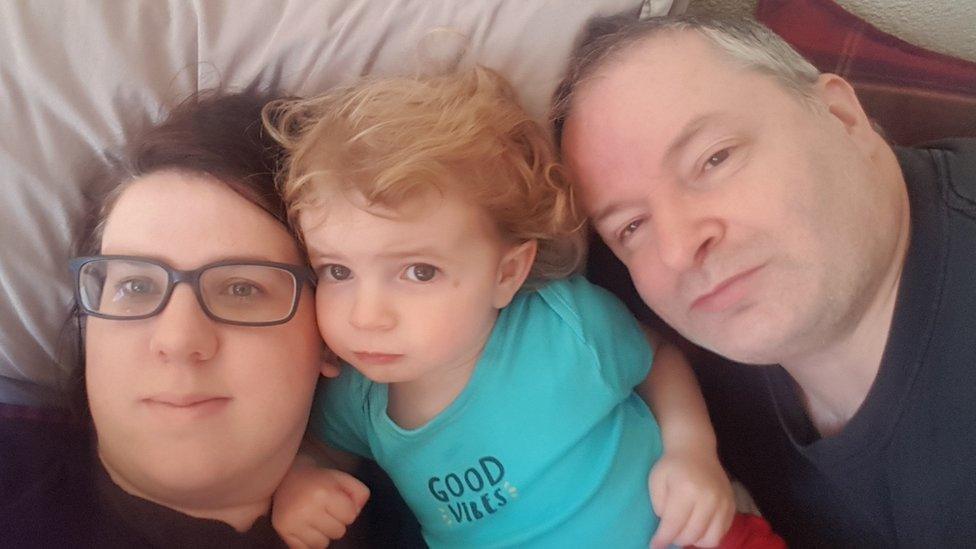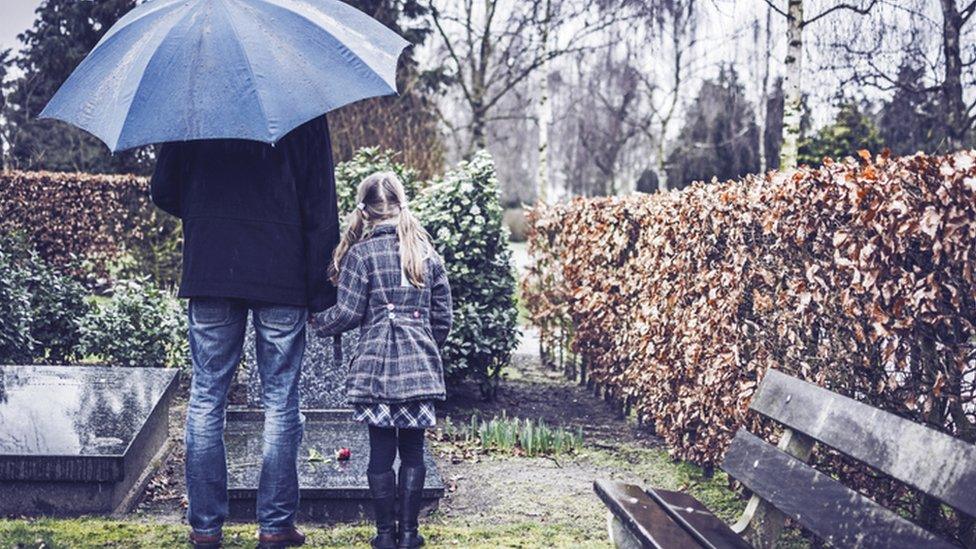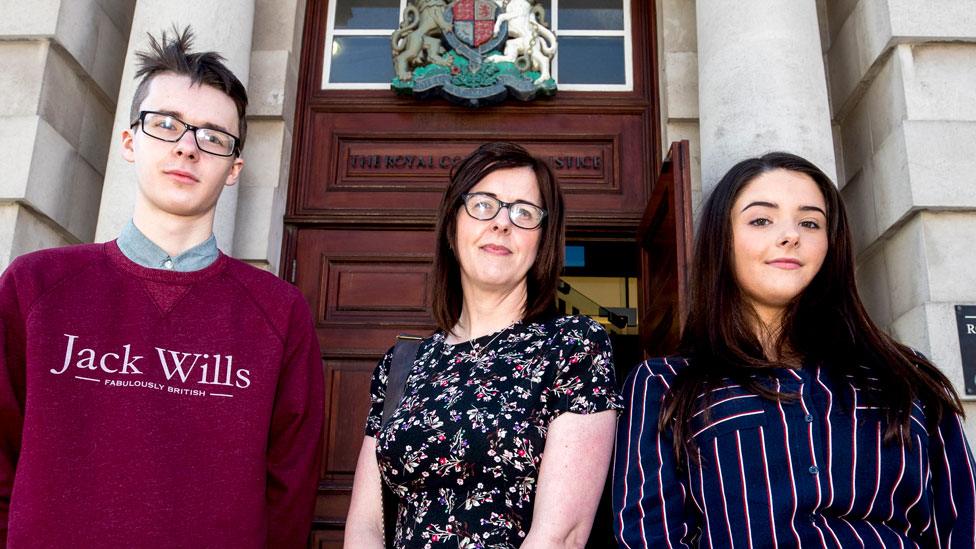'Relief and delight' over bereavement benefit change
- Published

Laura was ineligible for support payments as she was not married to her partner when he died
One day in February 2020, Laura's partner went out for a run and never came back - leaving her to care for their two-year-old son on her own.
"We waited and waited, then went out to find him," she recalls. After coming across an ambulance, she was shocked to discover that he had died of a sudden heart attack.
Compounding Laura's intense grief was the fact she was not able to claim bereavement benefits as she had not been married or in a civil partnership.
But this situation is set to change, after Parliament approved payments for unmarried parents who lose a partner, provided they are under pension age.
Laura greeted the news with "relief and delight".
In an interview with Radio 4's Money Box programme, she recalled how losing her partner "absolutely floored" her, and how the family had "no idea there was anything wrong with him at all".
Although she was initially ineligible to receive any payments from the government, Laura now expects to receive a back-payment of nearly £10,000.
She said the sum will mean "one less worry" during life's most "difficult time" and will help her cope with the cost-of-living crisis.
It is now expected that tens of thousands of unmarried parents under pension age, whose partners have died, will be able to claim benefits dating back to 30 August 2018.
That was the date on which the Supreme Court ruled on the case of Siobhan McLaughlin that it was against human rights law to deny such payments to unmarried parents.
The ruling put pressure on ministers to change the rules to benefit thousands of others - though campaigners, including Laura, spent years calling for a change to the law.
Parliament ultimately gave the green light on Wednesday.
Laura said the change was "well overdue", and paid tribute to the activism of charities such as Widowed and Young (WAY).
Another charity, the Childhood Bereavement Network (CBN) is also celebrating the change.
Director Alison Penny told Money Box that around 21,000 families could be in line for a retrospective payment - and, in the future, 1,800 could expect to receive benefits each year.
The funds would help bereaved parents to put "children's needs first", she explained.
But Laura is concerned that not all of the families in line for back-payments will realise they can claim money.
She urged others to "have those conversations with people who you know are affected by this".
Earlier this week, a statement from the Department for Work and Pensions (DWP) confirmed that more bereaved payments will be able to claim benefits when applications open "early this year".
It said some people would be eligible for backdated payments if their partner died before the law was changed, and promised that more details would appear on the government website.
Viscount Younger of Leckie, the work and pensions minister, said: "I am pleased to see this important change is nearing its very final steps to becoming law, so more bereaved parents can access this support."
Related topics
- Published19 May 2021

- Published30 August 2018
